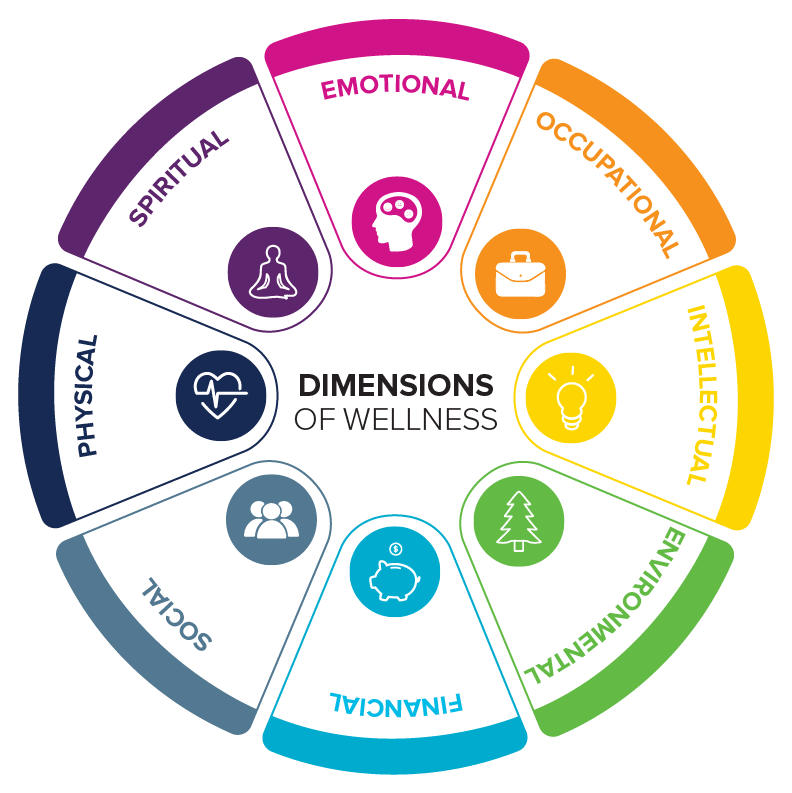Wellness is a multifaceted concept that encompasses various dimensions of overall health and well-being. While different models may categorize dimensions of wellness differently, here are some commonly recognized dimensions of wellness:
-
Physical Wellness: Physical wellness refers to the state of your physical health and how well your body functions. It includes factors such as exercise, nutrition, sleep, regular check-ups, disease prevention, and the avoidance of harmful habits like smoking or excessive alcohol consumption.
-
Emotional Wellness: Emotional wellness focuses on understanding and managing your emotions effectively. It involves being aware of and expressing your feelings, coping with stress, developing resilience, and maintaining healthy relationships. Emotional wellness also encompasses self-acceptance and self-care practices.
-
Mental Wellness: Mental wellness refers to the state of your mental and cognitive health. It involves having a positive mindset, managing stress, developing coping strategies, maintaining healthy thought patterns, and seeking help when needed. Mental wellness includes activities that promote mental stimulation, such as learning, problem-solving, and engaging in creative pursuits.
-
Social Wellness: Social wellness relates to your ability to form and maintain healthy relationships and engage in meaningful connections with others. It includes building a support network, fostering positive communication and interactions, practicing empathy, and participating in social activities that bring joy and fulfillment.
-
Intellectual Wellness: Intellectual wellness focuses on keeping your mind engaged and continuously learning. It involves seeking knowledge, developing critical thinking skills, pursuing intellectual interests and hobbies, staying curious, and being open to new ideas and perspectives.
-
Occupational Wellness: Occupational wellness relates to finding satisfaction and fulfillment in your work or chosen occupation. It involves having a sense of purpose, finding work-life balance, engaging in meaningful and rewarding activities, and developing skills and competencies to excel in your professional life.
-
Environmental Wellness: Environmental wellness relates to your relationship with the surrounding environment. It includes practices that promote sustainability, conservation, and protection of natural resources. Environmental wellness also involves creating a safe, clean, and harmonious living and working environment.
-
Spiritual Wellness: Spiritual wellness involves finding meaning, purpose, and connection with something larger than oneself. It can be related to religious beliefs, but it also extends to personal values, ethics, mindfulness practices, meditation, or any activities that nurture your inner self and promote inner peace.
These dimensions of wellness are interconnected and influence each other. Striving for balance and addressing each dimension can contribute to overall well-being and a higher quality of life. It's important to recognize that wellness is a personal journey, and individuals may prioritize and focus on different dimensions based on their own needs and values.





